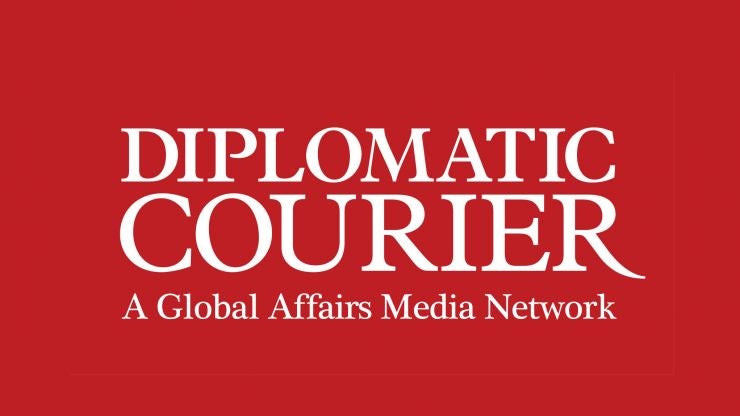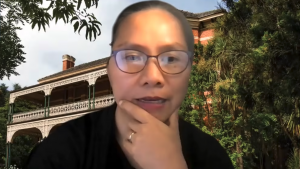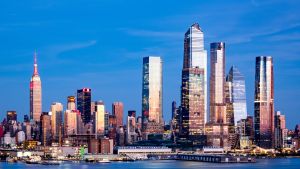China's Rise and Reach: The Belt and Road City
About This Event
The Chicago Council on Global Affairs is convening academics and practitioners for a virtual workshop to examine the role of cities in China’s Belt and Road Initiative (BRI). Successful global powers in this century will build stable and innovative cities at home while projecting influence, and at times military strength, in urban settings abroad. As China seeks to reconceptualize its political place in the world, the BRI has the potential to significantly reshape the international order, repositioning the country at the heart of a web of global influence.
This event is the culmination of the Great Powers and Urbanization Project, a multi-year initiative to determine how global economic and demographic trends have increased the importance of cities and their role in 21st-century geopolitics.
About the Great Powers and Urbanization Project
Over the course of the early 21st century, global economic and demographic trends have increased the relative importance of urban spaces, and cities themselves have organized collectively in the face of transnational challenges. While cities and mayors have increasingly moved into the international arena, heightened geopolitical tensions have demonstrated that the nation-state, and tensions between nation-states, will still shape much of the future. Great power politics and urbanization are not separate phenomena. Peace, power, and prosperity in the 21st century will require urban expertise, as will solving global problems around climate change, migration, and equitable development.
Through convenings and policy briefings around the world, written outputs, and multimedia communications, this project serves as a platform for scholars and practitioners to engage with the intersection of geopolitics and urbanization, providing analysis and guidance for policymakers at the local, national, and international levels.
Project Partners
The Great Powers and Urbanization Project is a collaboration of global leaders in international and urban affairs. Please visit their websites for more information.









Related Content
- Building Back Better: Cities and the EU Recovery Plan
- Cities and Nations: A Mutual Dependency
- A Tale of Three Cities
- Cities in a World of States
- Cities, Geopolitics, and the International Legal Order Report and Thought Pieces
- Cities and International Lawyers Need to Start Talking to One Another
- Analysis: Cities are Advancing the SDGs Through Collective Action
- Towards Formal Representation of Cities Regions: Lessons from the EU
- Building a Nationscape: The Showcase of Cities of the Gulf
- Municipalism is an Important Global Movement, and its History Matters
- Scale Without Power: Global Cities in the World's Largest Democracy
- Cities of the New Silk Roads
Geopolitics and Urbanisation in the Asia-Pacific
In June 2021, the Connected Cities Lab hosted two sessions titled Geopolitics and Urbanisation in the Asia-Pacific. Full videos of these events, recorded by the Connected Cities Lab at the University of Melbourne, are available below.
 Play Video
Play Video
Session 1
 Play Video
Play Video
Session 2
Previous Workshops
Learn more about the project through recaps of previous workshops.
This workshop, hosted by the University of Melbourne's Connected Cities Lab, took place on June 2-3, 2021. Participants focused primarily on cities across the Asia-Pacific and aimed to paint a picture of the geopolitical complexity of a region.
This seminar focused on cities across Africa to explore how different urbanization challenges and opportunities take on particular inflections due to the relationships between local, regional, and international scales on the continent. The workshop, on May 7, 2021, reflected on the tremendous need and opportunity for cities to engage in geopolitical processes, along with a series of challenges that need to be both acknowledged and addressed. Watch the full event, hosted by African Centre for Cities.
On March 16, 2021, the Argentine Council for International Relations (CARI), the government of the Autonomous City of Buenos Aires, the Chicago Council, and the Diplomatic Courier hosted a third workshop, the webinar on the "Cities and Great Powers" with a particular focus on Latin America. Read the full report from this workshop.
Cities have been advocating for a seat at the global table for decades. Although they are recognized as part of the international system, their capacity to influence is still limited to a consultative role and largely symbolic. Global and regional governance structures have been designed by and for nation-states and they leave little room for the involvement of other stakeholders, including local governments. Within the framework of the GPUP, CIDOB’s Global Cities Programme brought together GPUP partner institutions, city diplomacy practitioners, and other experts for a digital seminar on October 26-27, 2020, to discuss the changing role of cities in global and regional governance. Read the report associated with the workshop.
The first GPUP workshop was hosted at Perry World House, the University of Pennsylvania’s global affairs hub, on September 5-6, 2019 in Philadelphia. This workshop explored the nexus of urbanization and great powers, past and present, as well as national urban policies and national security strategies.
Globalization has produced tensions between economic space and governance space, leading to new forms of global politics and relationship building, along with questions around authorities and sovereignty. How do we situate these tensions amid the longer histories of both capitalism and geopolitical competition?
The workshop also focused on how cities are engaging international law and legal institutions, identifying the potential implications of cities’ expanded role in global affairs in creating and changing international legal norms. Finally, it examined how cities are shaping, and being shaped by, great power politics. Read the full workshop report.
Featured Commentary
 Global Cities
Global Cities
